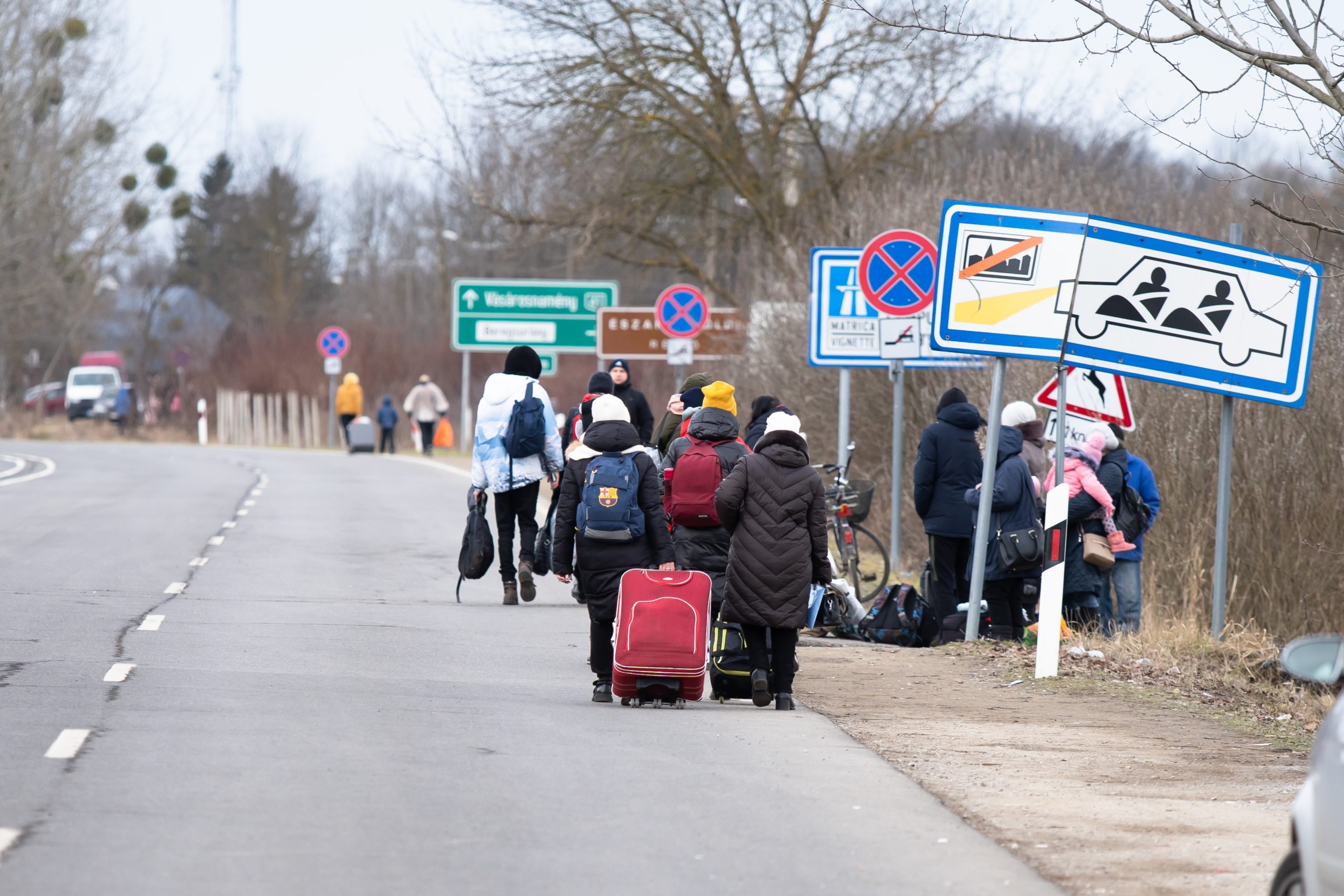A sizable minority of refugees who’ve arrived in France after allegedly fleeing the Russia-Ukraine conflict are not Ukrainian, with many of the new arrivals originating from Africa, the Middle East, Central and East Asia, and the Indian subcontinent, a French media outlet has claimed.
As of earlier this month—of the more than 5,000 asylum seekers who had arrived in France in the days which followed the outset of Russia’s military incursion into Ukraine—some 30% of are nationals from Algeria, Morocco, India, Kyrgyzstan, Côte d’Ivoire, the Congo, Cameroon, Nigeria, Angola, Guinea, Pakistan, and China, the Paris-based newspaper Le Figaro reports.
According to the report, the majority of the non-Ukrainian asylum seekers are Algerian passport holders, at 7.5%, while 3.5% of new arrivals are nationals of the Côte d’Ivoire and Morrocco, respectively. Meanwhile, Indian and Kyrgyzstan passport holders together composed 5% of newcomers, while a smaller—but not insignificant percentage—of newly arrived asylum seekers are citizens of Pakistan, Nigeria, Cameroon, China, and the Democratic Republic of Congo.
In the wake of the Le Figaro report, David Lisnard (LR), the mayor of Cannes, said that he had also witnessed large numbers of non-Ukrainians entering the European Union during a recent visit to the Ukraine-Poland Border. “I have seen on the ground [in Ukraine and Poland], the further away from the border you get, more refugees are infiltrated by non-Ukrainians (who do not have refugee status),” he wrote on social media.
Nicolas Bay, a former MEP for Rassemblement National who now serves as the vice-president for Reconquête, also expressed concerns about the number of foreign nationals flowing into France, saying: “Today a third of the refugees who pass through Ukraine who do not come from Ukraine, but who come from sub-Saharan Africa in particular and who use this new migratory route to come to Europe.”
“There are those who come for economic reasons, who weigh down our public accounts and our social accounts and the Ukrainians towards whom we have a duty of European solidarity of course,” since they “are part of our civilization,” Bay added.
Despite the emotionally charged rhetoric, the events described—and figures reported by the French newspaper—aren’t particularly surprising in light of the fact that 23,000 of the 76,000 international students who had been studying in Ukraine before Putin’s invasion began are from Africa. Furthermore, per data from UNESCO, as of 2020-2021, most international students living in Ukraine were Morrocan, Nigerian, Ghanian, Tunisian, and Egyptian.
Presently, it appears unlikely that most non-Ukrainians who’ve fled the conflict will be granted refugee status. Under the current framework within the European Union, this special status only applies to Ukrainians, foreign spouses of Ukrainians, as well as asylum seekers who lived in Ukraine before February 24th.
As of March 10th, the French government noted that “third-country nationals who are able to return to their country of origin in safe and sustainable conditions” are excluded from the temporary protection that’s been afforded to Ukrainians. Non-Ukrainians presently in France can, however, apply for asylum or a residence permit.
At this point, nearly one month into the conflict, more than three million people have been forced to flee Ukraine, the largest mass migration event to take place in Europe since the Second World War. According to the International Organization for Migration, 162,00 foreign nationals who had previously been living in Ukraine were among those who have fled to the west.





